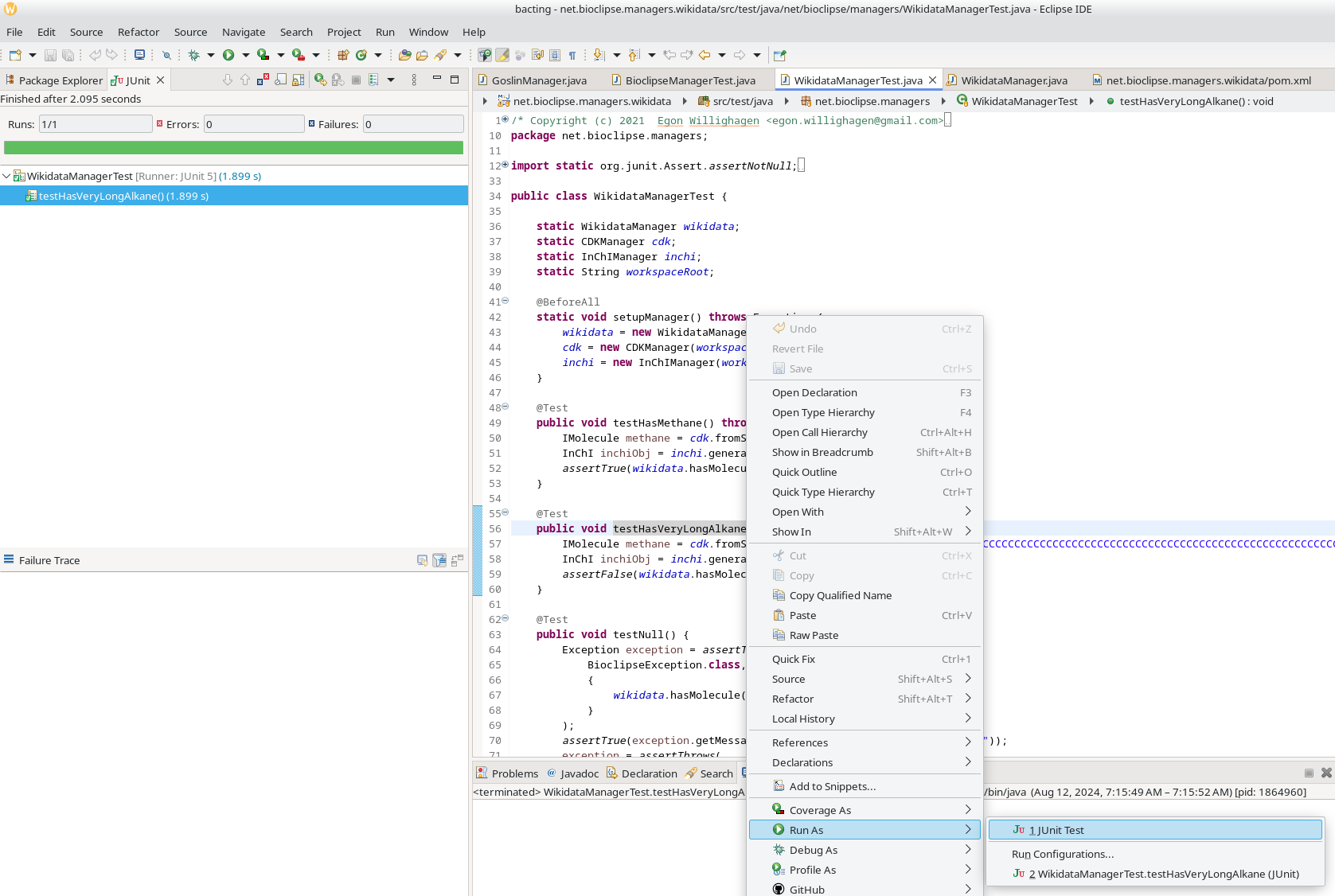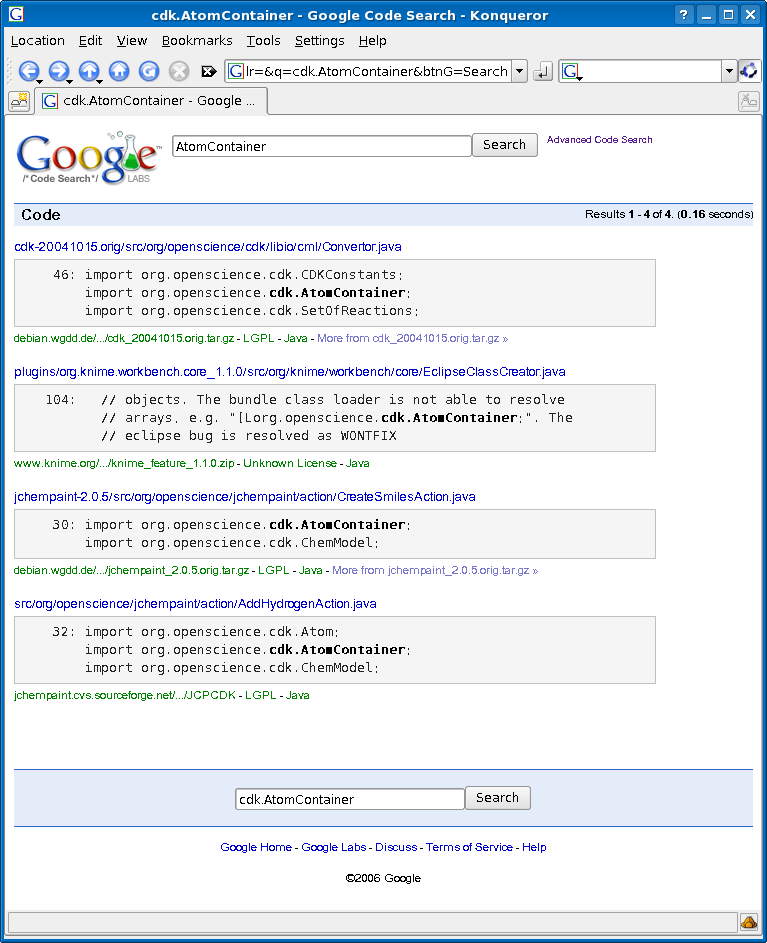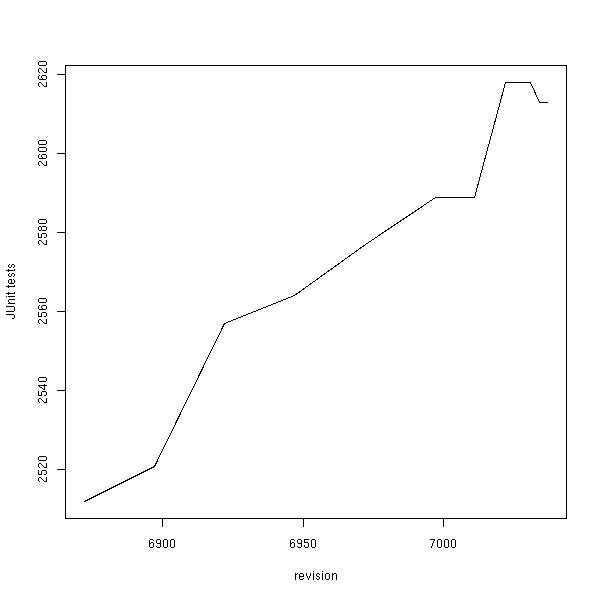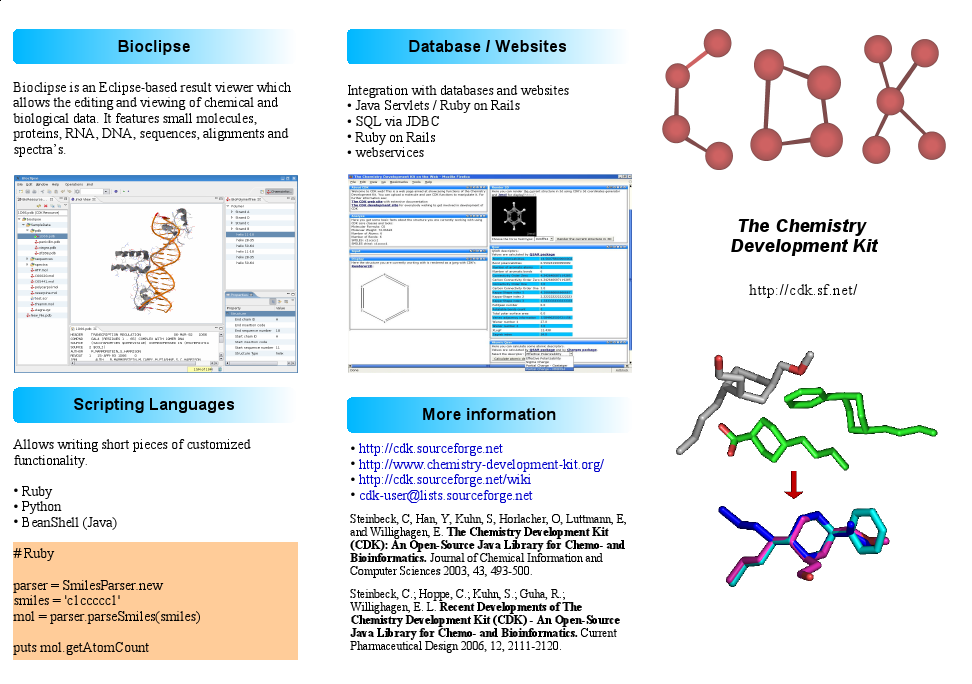The Bioclipse Workshop is in progress, and Ola is now leading a discussion about future releases and functionality. Proceedings are live updated, and presentation sheets will be available shortly.
chem-bla-ics
The Blue Obelisk mailing list has seen an interesting discussion on ambiguity in the term ‘open source’, triggered by a study by Beth Ritter Guth. For example, Jean-Claude Bradley performs ‘open source’ science (see his Useful Chemistry blog) who is not opposed to using closed source software, while the Blue Obelisk is about ‘open source’ software.

Unit testing is important when developing source code. JUnit provides a library to facilitate this in Java, and Eclipse had the functionality to run JUnit tests. Even better, it allows you to run single JUnit tests, even in debug mode: Just open the java class in your Package Explorer, right click on the JUnit method you want to run, then pick Run As or Debug As, and then JUnit test.
There are many ways to contribute to opensource software (OSS), programming only being one of them. I develop OSS, but use OSS too. For example, I am a big user of the Linux kernel, the KDE desktop, Kubuntu, Debian (I have unstable in a chroot), Firefox, Eclipse, Classpath, and many, many others. What these have in common, is that I generally have no time to look into the source code of these projects.
Joerg Wegner recently blogged about Chemogenomics: structuring the drug discovery process to gene families by C.J. Harris and A. P. Stevens in Drug Discov Today (DOI: 10.1016/j.drudis.2006.08.013). This review article provides a nice overview of a trend in mathematical modelling of the interaction of small organic molecules with proteins, often referred to as QSAR.

Google has set up a new search enginge specifically for source code: /* Code Search */. Important difference with their normal search engine is that it allows restricting your search by programming language, license and filename and package. I have not been able to figure out how to use ‘package’ yet, but the others are pretty clear.
I have heard that bioinformatics is ahead of chemoinformatics. However, I discoverd that this is not necessarily the case, while preparing for a homology modeling course I gave this week at the CUBIC. Open Access is really no issue there, with open access journals and many open access databases. But it is different when it comes down to open source software.
CompLife’06 started today in Cambridge, UK. About 80 people are attending the meeting, and topics range from systems biology to QSAR. This evening there was a free software session mostly focussing on opensource software.

Day 5 was formally the last day (see also the summaries of day 1, day 2 and day 3/4) of the Chemistry Development Kit Bug Squash Party (BSP). Miguel uploaded the last bits of his CDK PDBPolymer to CML to CDK PDBPolymer roundtripping functionality (closing a bug and a feature request in one go). Have not tested this first hand yet, but looking forward to playing with this bit of code.

Because I was struggling hard with default values for cdk.interfaces fields, I did not have time to write up the Bug Squash Party report for day 3 (see also day 1 and day 2). But here it is. Day 3 Kai worked hard on getting the cdk.interfaces API cleaned up, as agreed upon earlier. Christian added a test for the RMSD calculator (see getAllAtomRMSD()), and cleaned up his code a bit.